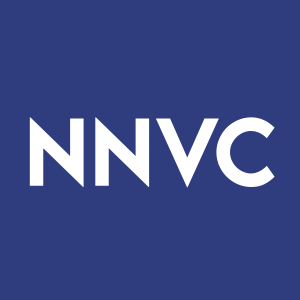There is a Strong Business Case for Phase II Clinical Program for Treatment of MPox Infection Using NV-387, an Industry-Leading Broad-Spectrum Antiviral Drug Candidate
Rhea-AI Summary
NanoViricides (NYSE Amer.:NNVC) has announced plans to advance its lead drug candidate NV-387 into Phase II clinical trials, initially focusing on MPox treatment. The company has already secured a Clinical Trial Site in the Democratic Republic of Congo (DRC) and is finalizing the trial protocol.
The strategic decision to prioritize MPox is driven by several factors: the ongoing epidemic in Africa enabling timely patient recruitment, lower clinical trial costs compared to US/Europe trials, and potential inclusion in the US Strategic National Stockpile (SNS). The company notes that current approved drugs for smallpox treatment, tecovirimat (Tpoxx) and brincidofovir (Tembexa), have shown limitations in MPox treatment.
NanoViricides has developed "NV-387 Oral Gummies" as the drug delivery format, specifically designed for MPox patients who may have difficulty swallowing due to mucosal lesions. The drug substance manufacture is substantially completed at the company's facility, with drug product manufacturing in progress.
Positive
- Clinical trial site secured in DRC with protocol in final stages
- Drug substance NV-387 manufacturing substantially completed at company facility
- Potential for significant SNS contracts, with recent comparable deals exceeding $150 million
- Strategic advantages of MPox program include lower trial costs and faster path to revenue
- Novel gummy formulation specifically designed for MPox patient needs
Negative
- Multiple regulatory approvals still required before commercialization
- Dependence on external collaborators and consultants may affect timeline
- Competition from existing approved drugs in the market
- No guaranteed timeline for IND filing
News Market Reaction
On the day this news was published, NNVC declined NaN%, reflecting a moderate negative market reaction.
Data tracked by StockTitan Argus on the day of publication.
SHELTON, CT / ACCESS Newswire / July 1, 2025 / NanoViricides, Inc., a publicly traded company (NYSE Amer.:NNVC ) (the "Company"), and a clinical stage, leading global pioneer in the development of broad-spectrum antivirals based on host-mimetic nanomedicine technology that viruses cannot escape, announces that it is forging ahead with advancing its lead candidate NV-387 into Phase II clinical drug development.
NanoViricides has chosen MPox as the first indication to advance NV-387 into Phase II clinical trials out of the four indications for which the Company has substantial efficacy data in animal studies, namely RSV, Influenza, COVID, and Orthopoxviruses (MPox/Smallpox).
The MPox program enables advancing its pipeline towards revenue in the fastest possible manner, the Company believes. The Company intends to advance NV-387 against respiratory infections soon after the Phase II clinical trial of NV-387 for the treatment of MPox infection gets under way.
NanoViricides has already added one Clinical trial Site to the MPox Phase II Program.
A Phase II Clinical Trial Protocol has been developed with the Principal Investigator at this site in the Democratic Republic of Congo (DRC), and this Protocol is undergoing final refinements.
A Clinical Trial Application is in development with many parts having been substantially completed.
NanoViricides has engaged a Clinical Research Organization (CRO) to organize and conduct this Phase II clinical trial for the treatment of MPox with NV-387, as previously stated, and this CRO has organized the Clinical Trial Site and is preparing the CTA with the Company's inputs.
The manufacture of the drug substance NV-387 is substantially completed at the Company's own facility. The manufacture of the drug product "NV-387 Oral Gummies" is in progress.
MPox as the first indication has several strategic benefits for the Company.
Firstly, because of the continuing epidemic in the African Region there is a strong need for the drug and also there is the ability to recruit patients and complete the clinical trial in a timely manner. Additionally, running clinical trials in the African Region is substantially less expensive than clinical trials in USA or Europe that the Company has planned for RSV, a commercially important indication with multi-billion dollar potential market.
Secondly, a proof of efficacy in humans of NV-387 against MPox would validate our use of lethal challenge animal models and would establish that our animal model data are predictive of human outcomes. This would have huge implications since our animal model data against every infection we have tested to date has demonstrated NV-387 to be substantially superior to existing drugs, viz. RSV, Influenza, COVID, and of course, MPox/Smallpox.
Thirdly, there is a strong financial case for choosing MPox as the indication. This business case has become even stronger with the failure of tecovirimat (Tpoxx) in clinical trial against MPox. Tecovirimat and brincidofovir (Tembexa) are the only two drugs approved by the US FDA for the treatment of Smallpox, a virus of bioterrorism concern. Both of these drugs were approved under the "FDA Animal Rule", which eliminates the need for demonstration of efficacy in humans. The "FDA Animal Rule" is applicable for diseases such as Smallpox and others where clinical trials in human patients are not feasible or would be unethical.
These FDA approvals have led to the acquisition of these two drugs into the US Strategic National Stockpile (SNS) to the tune of billions of dollars. And now, there is a clear need for replacing these non-performing drugs with a drug that actually works against MPox and Smallpox (see further down below).
We believe NV-387 would become the choice for addition to the SNS if our proposed Phase II clinical trial against MPox demonstrates benefits of the NV-387 treatment.
The most recent acquisition contracts with BARDA for tecovirimat, which were for drug replenishments, have been valued at over
An initial stocking contract for NV-387 is likely to be substantially larger, as was the case with the initial acquisition of several drugs into the SNS.
Brincidofovir failed an early clinical trial against MPox due to liver toxicity. Tecovirimat failed a recent clinical trial against MPox since it demonstrated no superiority in efficacy over the standard of care.
Importantly, both of these drug candidates are small chemicals that the viruses can readily escape by mutations. Smallpox, if it ever becomes fielded as a bio-terrorism agent, is unlikely to be in the "original" form of the virus, and could be explicitly manipulated to breed resistance to such small chemical drugs by onerous entities.
Of note, MPox is in the same family as the Smallpox virus; MPox causes a much weaker form of disease than the Smallpox virus.
Thus there is a strong case for HHS to support NV-387 drug development for Bioterrorism Readiness.
The "NV-387 Oral Gummies" drug product is a soft solid formulation that is designed to stick in the oral cavity and dissolve naturally over time, with no solid object (pill or capsule) swallowing necessary. This is important for MPox because MPox causes lesions on mucosal surfaces that make swallowing painful and difficult. MPox is primarily known for the explicit characteristic painful rash on the external skin, but it is a significantly more severe disease than just a skin rash.
The MPox virus circulating in DRC and neighboring regions is of Clade 1a and Clade 1b subtypes, with the latter predominant. Clade 1b is more transmissible of the two, which is why it has resulted in a sustained epidemic. The MPox Clade 1a case fatality rate (CFR) is about
NanoViricides, Inc. (the "Company") ( www.nanoviricides.com ) is a publicly traded (NYSE-American, stock symbol NNVC) clinical stage company that is creating special purpose nanomaterials for antiviral therapy. The Company's novel nanoviricide™ class of drug candidates and the nanoviricide™ technology are based on intellectual property, technology and proprietary know-how of TheraCour Pharma, Inc. The Company has a Memorandum of Understanding with TheraCour for the development of drugs based on these technologies for all antiviral infections. The MoU does not include cancer and similar diseases that may have viral origin but require different kinds of treatments.
The Company has obtained broad, exclusive, sub-licensable, field licenses to drugs developed in several licensed fields from TheraCour Pharma, Inc. The Company's business model is based on licensing technology from TheraCour Pharma Inc. for specific application verticals of specific viruses, as established at its foundation in 2005.
Our lead drug candidate is NV-387, a broad-spectrum antiviral drug that we plan to develop as a treatment of RSV, COVID, Long COVID, Influenza, and other respiratory viral infections, as well as MPOX/Smallpox infections. Our other advanced drug candidate is NV-HHV-1 for the treatment of Shingles. The Company cannot project an exact date for filing an IND for any of its drugs because of dependence on a number of external collaborators and consultants. The Company is currently focused on advancing NV-387 into Phase II human clinical trials.
The Company is also developing drugs against a number of viral diseases including oral and genital Herpes, viral diseases of the eye including EKC and herpes keratitis, H1N1 swine flu, H5N1 bird flu, seasonal Influenza, HIV, Hepatitis C, Rabies, Dengue fever, and Ebola virus, among others. NanoViricides' platform technology and programs are based on the TheraCour® nanomedicine technology of TheraCour, which TheraCour licenses from AllExcel. NanoViricides holds a worldwide exclusive perpetual license to this technology for several drugs with specific targeting mechanisms in perpetuity for the treatment of the following human viral diseases: Human Immunodeficiency Virus (HIV/AIDS), Hepatitis B Virus (HBV), Hepatitis C Virus (HCV), Rabies, Herpes Simplex Virus (HSV-1 and HSV-2), Varicella-Zoster Virus (VZV), Influenza and Asian Bird Flu Virus, Dengue viruses, Japanese Encephalitis virus, West Nile Virus, Ebola/Marburg viruses, and certain Coronaviruses. The Company intends to obtain a license for RSV, Poxviruses, and/or Enteroviruses if the initial research is successful. As is customary, the Company must state the risk factor that the path to typical drug development of any pharmaceutical product is extremely lengthy and requires substantial capital. As with any drug development efforts by any company, there can be no assurance at this time that any of the Company's pharmaceutical candidates would show sufficient effectiveness and safety for human clinical development. Further, there can be no assurance at this time that successful results against coronavirus in our lab will lead to successful clinical trials or a successful pharmaceutical product.
This press release contains forward-looking statements that reflect the Company's current expectation regarding future events. Actual events could differ materially and substantially from those projected herein and depend on a number of factors. Certain statements in this release, and other written or oral statements made by NanoViricides, Inc. are "forward-looking statements" within the meaning of Section 27A of the Securities Act of 1933 and Section 21E of the Securities Exchange Act of 1934. You should not place undue reliance on forward-looking statements since they involve known and unknown risks, uncertainties and other factors which are, in some cases, beyond the Company's control and which could, and likely will, materially affect actual results, levels of activity, performance or achievements. The Company assumes no obligation to publicly update or revise these forward-looking statements for any reason, or to update the reasons actual results could differ materially from those anticipated in these forward-looking statements, even if new information becomes available in the future. Important factors that could cause actual results to differ materially from the company's expectations include, but are not limited to, those factors that are disclosed under the heading "Risk Factors" and elsewhere in documents filed by the company from time to time with the United States Securities and Exchange Commission and other regulatory authorities. Although it is not possible to predict or identify all such factors, they may include the following: demonstration and proof of principle in preclinical trials that a nanoviricide is safe and effective; successful development of our product candidates; our ability to seek and obtain regulatory approvals, including with respect to the indications we are seeking; the successful commercialization of our product candidates; and market acceptance of our products.
The phrases "safety", "effectiveness" and equivalent phrases as used in this press release refer to research findings including clinical trials as the customary research usage and do not indicate evaluation of safety or effectiveness by the US FDA.
FDA refers to US Food and Drug Administration. IND application refers to "Investigational New Drug" application. cGMP refers to current Good Manufacturing Practices. CMC refers to "Chemistry, Manufacture, and Controls". CHMP refers to the Committee for Medicinal Products for Human Use, which is the European Medicines Agency's (EMA) committee responsible for human medicines. API stands for "Active Pharmaceutical Ingredient". WHO is the World Health Organization. R&D refers to Research and Development.
Contact:
NanoViricides, Inc.
info@nanoviricides.com
Public Relations Contact:
ir@nanoviricides.com
SOURCE: NanoViricides, Inc.
View the original press release on ACCESS Newswire







